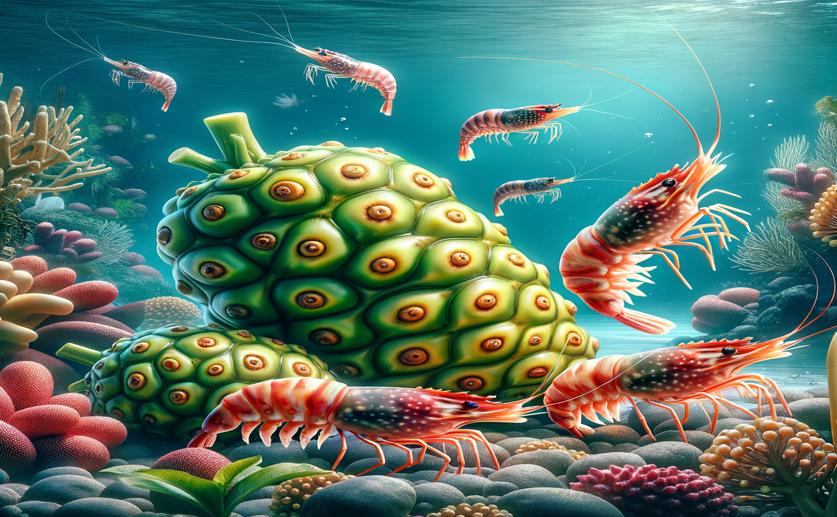
Noni Fruit Boosts Shrimp Defense Against Bacterial Infection
Jenn Hoskins
10th March, 2024

Image Source: Natural Science News, 2024
Key Findings
- In Malaysia, noni fruit extract improved shrimp survival against a harmful bacterium
- Shrimp fed the highest noni extract dose had the best survival rates
- The extract also boosted shrimp digestive health and reduced organ damage
References
Main Study
1) Morinda citrifolia fruit extract enhances the resistance of Penaeus vannamei to Vibrio parahaemolyticus infection.
Published 7th March, 2024
https://doi.org/10.1038/s41598-024-56173-4
Related Studies
2) Pandanus tectorius fruit extract promotes Hsp70 accumulation, immune-related genes expression and Vibrio parahaemolyticus tolerance in the white-leg shrimp Penaeus vannamei.
3) Understanding the role of the shrimp gut microbiome in health and disease.
4) Vibrio harveyi biofilm as immunostimulant candidate for high-health pacific white shrimp, Penaeus vannamei farming.
5) Transcriptomic analysis of Pacific white shrimp (Litopenaeus vannamei, Boone 1931) in response to acute hepatopancreatic necrosis disease caused by Vibrio parahaemolyticus.



 16th January, 2024 | David Palenski
16th January, 2024 | David Palenski